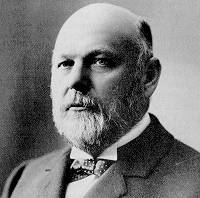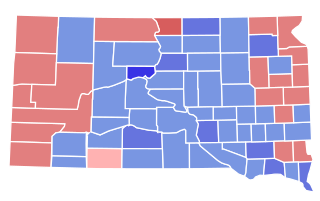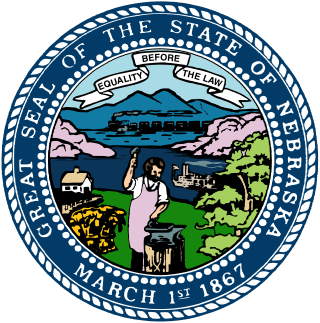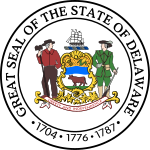
The 1928 United States presidential election was the 36th quadrennial presidential election, held on Tuesday, November 6, 1928. Republican former Secretary of Commerce Herbert Hoover defeated the Democratic nominee, Governor Al Smith of New York. After President Calvin Coolidge declined to seek reelection, Hoover emerged as his party's frontrunner. As Hoover's party opponents failed to unite around a candidate, Hoover received a large majority of the vote at the 1928 Republican National Convention. The strong state of the economy discouraged some Democrats from running, and Smith was nominated on the first ballot of the 1928 Democratic National Convention. Hoover and Smith had been widely known as potential presidential candidates long before the 1928 campaign, and both were generally regarded as outstanding leaders. Both were newcomers to the presidential race and presented in their person and record an appeal of unknown potency to the electorate. Both faced serious discontent within their respective parties' membership, and both lacked the wholehearted support of their parties' organization.

The 1910 Wyoming gubernatorial election was held on November 8, 1910. Incumbent Republican Governor Bryant B. Brooks declined to seek re-election. The leading Republican candidates to succeed him were initially former U.S. Senator Joseph M. Carey and Attorney General William E. Mullen. However, shortly before the Republican convention, Carey announced he would instead run as an independent candidate. Shortly thereafter, Mullen was formally nominated by the Republican Party. A week later, at the Democratic convention, Carey was named as the Democratic nominee for Governor. In the general election matchup between Carey and Mullen, Carey won a sizable victory, winning every county in the state, a feat that no other Democratic nominee would accomplish until Dave Freudenthal in 2006.

The 1892 Wyoming gubernatorial special election was held on November 6, 1892. Republican Governor Francis E. Warren, who was elected in 1890, resigned several weeks into his term after being elected to the U.S. Senate by the state legislature, elevating Secretary of State Amos W. Barber to the governorship and triggering a special election for the balance of Warren's term.

The 1928 United States presidential election in Indiana took place on November 6, 1928, as part of the 1928 United States presidential election which was held throughout all contemporary 48 states. Voters chose 15 representatives, or electors to the Electoral College, who voted for president and vice president.

The 1948 Delaware gubernatorial election was held on November 2, 1948.

The 1902 Tennessee gubernatorial election was held on November 4, 1902. Democratic nominee James B. Frazier defeated Republican nominee Henry Tyler Campbell with 61.77% of the vote.

The 1892 Idaho gubernatorial election was held on November 8, 1892.

The 1928 South Dakota gubernatorial election was held on November 6, 1928. Incumbent Democratic Governor William J. Bulow ran for re-election to a second term. In the general election, he faced Attorney General Buell F. Jones, the Republican nominee. Despite Republican presidential nominee Herbert Hoover overwhelmingly defeating Democratic nominee Al Smith overwhelmingly in South Dakota, Bulow defeated Jones by a decisive margin to retain the governorship. In so doing, he became the first Democratic candidate for Governor to receive a majority of the vote in the state's history.

The 1886 Delaware gubernatorial election was held on November 2, 1886. Incumbent Democratic Governor Charles C. Stockley was barred from seeing a second consecutive term in office. Former Congressman Benjamin T. Biggs won the Democratic nomination to succeed Stockley. The Republican Party, which was weak and practically nonexistent in the state at the time, did not run a candidate for Governor. As a result, the Temperance Reform Party briefly supplanted the Republican Party as the primary opposition to the Democratic Party. Former State Representative and Smyrna Town Treasurer John H. Hoffecker, a former Democrat, emerged as the Temperance Reform nominee. However, the Democratic Party remained strong in the state; with no Republican opponent and only weak opposition, Biggs won in a landslide.

The 1896 Delaware gubernatorial election was held on November 3, 1896. Shortly after his victory in the 1894 gubernatorial election, Republican Governor Joshua H. Marvil died. State Senate Speaker William T. Watson, a Democrat, became Governor and a new election for a full four-year term was scheduled in 1896. Though Watson was considered a potential candidate for re-election, the Democratic convention instead nominated Ebe W. Tunnell, the 1894 nominee for Governor; despite his protests that he would decline the nomination, Tunnell ultimately accepted it.

The 1904 Delaware gubernatorial election was held on November 8, 1904. Though incumbent Republican Governor John Hunn was eligible to run for re-election, he declined to do so. Instead, as the intra-party battle in the Republican Party between the Addicks and anti-Addicks factions continued, Hunn stepped aside to avoid additional conflict. The Addicks, or Union Republicans, nominated Henry C. Conrad for Governor, while the anti-Addicks, or Regular Republicans, held out with their own ticket and nominated Joseph H. Chandler for Governor. On October 12, 1904, the two factions united and agreed to jointly nominate industrialist Preston Lea, a favorite of the Regular Republicans.

The 1908 Delaware gubernatorial election was held on November 3, 1908. Though some Republicans had interest in nominating incumbent Governor Preston Lea to a second term, the state convention instead named former State Senator Simeon S. Pennewill as the Republican nominee. In the general election, Pennewill faced Democratic nominee Rowland G. Paynter, a physician. Pennewill ultimately defeated Paynter by a relatively slim margin, continuing the Republican streak in Delaware gubernatorial elections.

The 1912 Delaware gubernatorial election was held on November 5, 1912. Though Republican Governor Simeon S. Pennewill was eligible for re-election, State Senator Charles R. Miller was nominated by the state Republican convention. With the nationwide rise of the Progressive Party, Delaware Republicans were keen to not lose the race due to a strong showing by a Progressive candidate; Miller was seen as amenable to all factions of the Republican Party and to Progressives. In the general election, Miller faced Democratic nominee Thomas M. Monaghan, who had been elected as State Senate President in a majority-Republican chamber as the result of a coalition agreement with Progressives, and Progressive nominee George B. Hynson.

The 1916 Delaware gubernatorial election was held on November 7, 1916. Incumbent Republican Governor Charles R. Miller declined to run for re-election. At the time, the Republican Party was in the middle of a schism that had first developed during the 1912 presidential election. However, the schism did not affect the gubernatorial nomination; though there were rumors that the state party convention might seek to nominate Governor Miller for a second term, former State Representative John G. Townsend Jr. was seen as the frontrunner heading into the convention. He received the nomination without much difficulty and the Republican Party solidified around him its gubernatorial nominee. The Democratic Party nominated former Secretary of State James H. Hughes, and both Townsend and Hughes advanced to the general election.

The 1920 Delaware gubernatorial election was held on November 2, 1920. Incumbent Republican Governor John G. Townsend Jr. declined to seek re-election. At the Republican convention, former State Representative William D. Denney, the frontrunner for the nomination, received the Party's endorsement for Governor without difficulty—though some opposition to his candidacy arose before the convention.

The 1924 Delaware gubernatorial election was held on November 4, 1924. Republican Governor William D. Denney declined to seek re-election, and the Republican state convention unanimously named banker Robert P. Robinson as its nominee; Robinson emerged as a compromise selection.

The 1932 Delaware gubernatorial election was held on November 8, 1932. Incumbent Republican Governor C. Douglass Buck ran for re-election to a second term. He unanimously won renomination at the Republican state convention. In the general election, Buck faced the Democratic nominee, Landreth L. Layton, the scion of a prominent family in Delaware politics. Despite the nationwide Democratic landslide, Republicans performed well in Delaware; Herbert Hoover narrowly won Delaware over Franklin D. Roosevelt. Accordingly, Buck was able to win re-election, and significantly outpaced Hoover's slim margin; he received 54% of the vote to Layton's 45%.

The 1936 Delaware gubernatorial election was held on November 3, 1936. Incumbent Republican Governor C. Douglass Buck was barred from seeking re-election to a third term, creating an open race. A challenging contest developed on the Republican side to succeed Buck, with Harry L. Cannon, former State Senator I. Dolphus Short and Assistant Motor Vehicle Commissioner George S. Williams all emerging as frontrunners. Cannon, a longtime figure in state politics who served as a member of the State Board of Agriculture and on the University of Delaware Board of Trustees, ultimately won the nomination. Short walked out of the convention, however, and shortly thereafter organized a slate of statewide candidates as Independent Republicans, dividing the party.

The 1940 Delaware gubernatorial election was held on November 5, 1940. Incumbent Democratic Governor Richard McMullen originally ran for re-election to a second term, and was renominated by the Democratic Party. However, less than a month before the election, McMullen suffered a heart attack and he dropped out of the race. The state party named Secretary of State Josiah Marvel Jr., as McMullen's replacement on the ballot. On the Republican side, Wilmington Mayor Walter W. Bacon was nominated by the Republican Party for Governor.

The 1900 Nebraska gubernatorial election was held on November 6, 1900.











